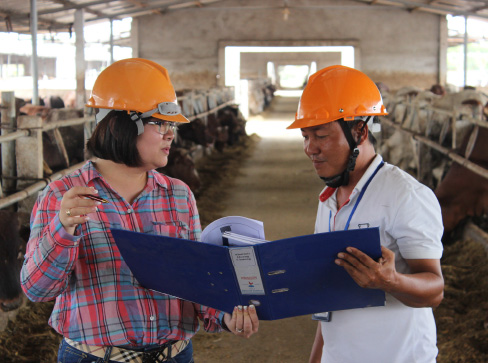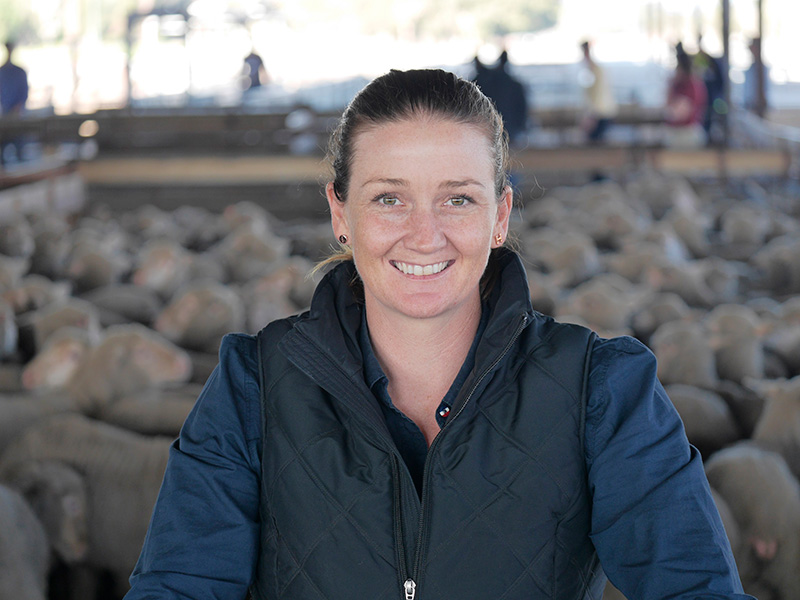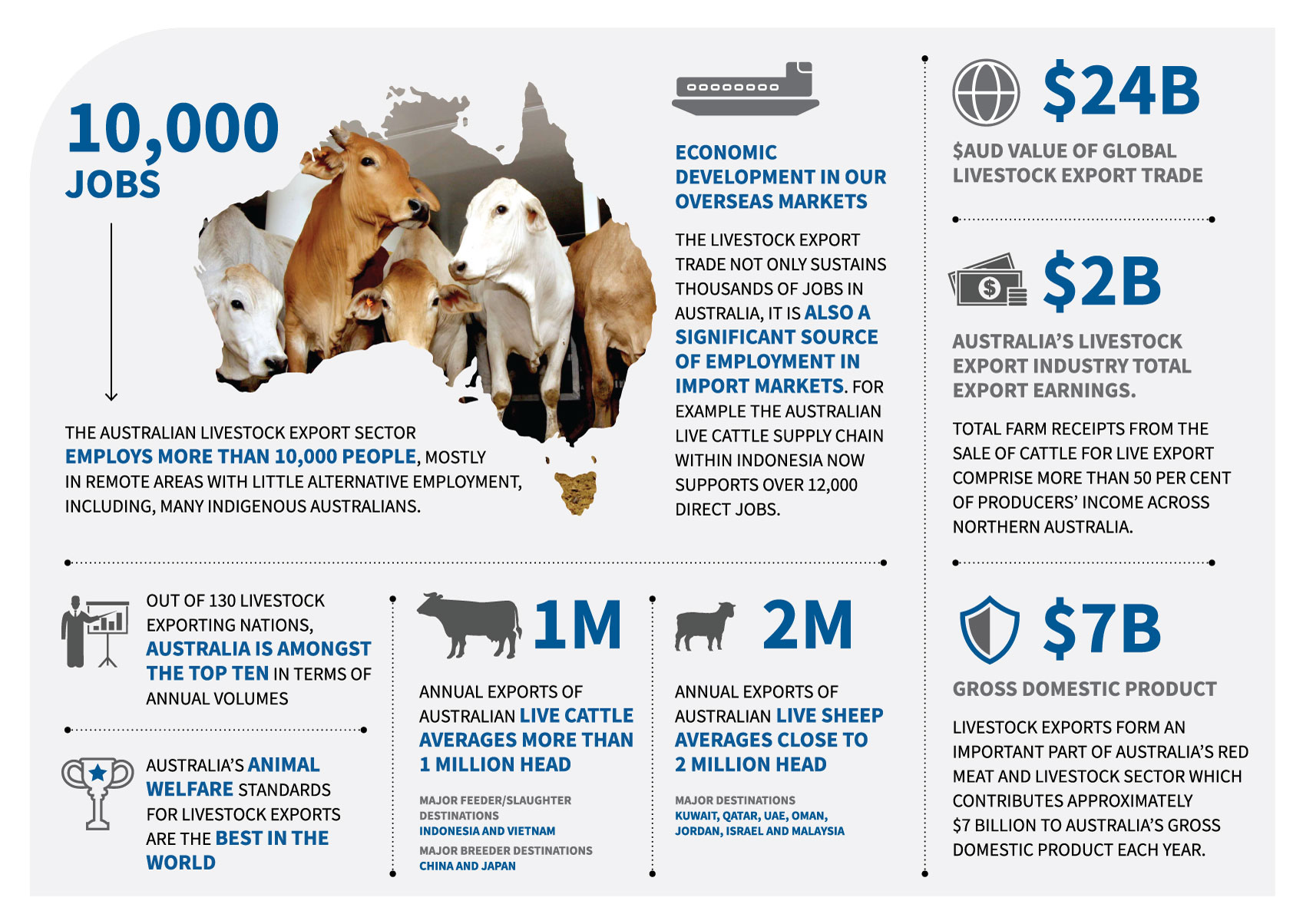Under ESCAS, livestock exporters must ensure livestock control and traceability throughout the entire supply chain. This ensures that livestock remains within an approved supply chain and provides assurance that the subsequent handling and slaughter in accordance with international animal welfare recommendations.
The introduction of ESCAS as well as the critical investment made by Australian exporters, foreign importers, and importing governments have had a substantial impact on welfare outcomes for livestock exported from Australia.
Australia Exporters are also required to comply with the Australian Standards for the Export of Livestock (ASEL), which applies to the preparation of livestock for the voyage from farm through to on-board care, as well as State and Federal Government animal welfare regulations to assure the welfare of exported livestock.



